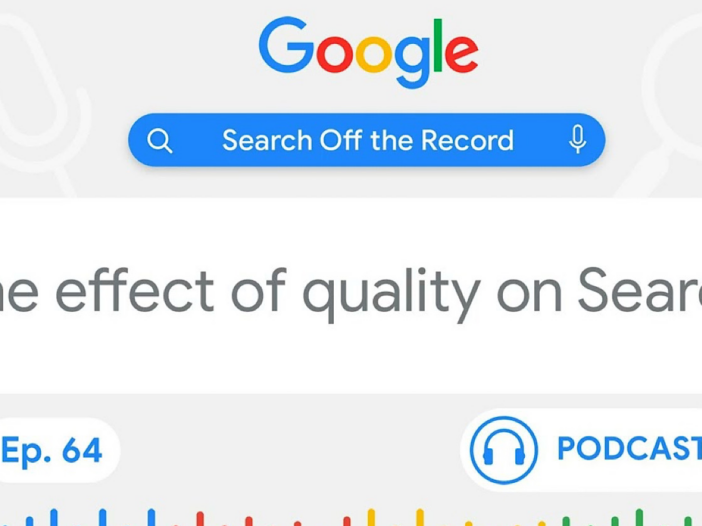
Join this leadership discussion for proven techniques to build long-term relationships and keep your clients coming back.
Discover the latest trends, tips, and strategies in SEO and PPC marketing. Our curated articles offer in-depth analysis, practical advice, and actionable insights to elevate your digital marketing efforts.
In this guide, industry experts explore the challenges and opportunities presented by the onslaught of AI tools, and provide actionable tips for thriving amid these shifts.
Discover the latest trends, tips, and strategies in SEO and PPC marketing. Our curated articles offer in-depth analysis, practical advice, and actionable insights to elevate your digital marketing efforts.
Join three of Reddit’s top executives in this exclusive AMA (Ask Me Anything) to discover how you can tap into Reddit’s unique platform to drive brand growth.
Join this leadership discussion for proven techniques to build long-term relationships and keep your clients coming back.
Quality content is the top factor influencing Google’s indexing and crawling decisions, per a discussion in a recent podcast.
Quality is a critical factor influencing nearly every aspect of search, according to a recent discussion between John Mueller and Gary Illyes of Google’s Search Relations team.
During the recent “Search Off the Record” podcast, the two delved into quality’s role in everything from crawling and indexing to ranking.
While quality content doesn’t guarantee high rankings, it can impact how Google interacts with a site.
Additionally, the conversation dispelled common SEO myths and clarified that affiliate sites can produce quality content.
Here are the highlights from the latest podcast episode.
According to Illyes, quality is a significant factor in all search systems, influencing everything from sitemaps to ranking.
“Quality affects pretty much everything that the Search systems do,” Illyes explained, emphasizing the breadth of quality’s role from sitemaps to ranking.
The conversation revealed that Google’s crawl scheduler uses quality signals to prioritize URLs for crawling. If Google knows it has X URLs to crawl from a site, it tries to build an ordered list based on its predicted quality.
Moreover, quality is a significant factor when it comes to indexing decisions, Illyes explains:
“The most important is quality. It’s always quality. And I think externally, people don’t necessarily want to believe it, but the quality, that’s the biggest driver for most of the indexing and crawling decisions that we make.”
A website’s quality can impact the crawling process, even for new sites. For example, if a new page is discovered through sitemaps, Google will look back on the quality of the previously crawled homepage to decide whether to crawl the new page.
While quality does influence how Google crawls and indexes pages, it doesn’t necessarily equate to higher rankings.
Illyes clarified that having high-quality content doesn’t automatically guarantee a top spot in Google’s search results.
Illyes explained that quality can be specific to different parts of a website.
For instance, if one part of a site consistently delivers high-quality content, it may be treated differently from another known for lower-quality content.
On the other hand, if certain parts of a website consistently deliver low-quality content, these areas might be crawled less frequently.
User-generated content (UGC) was cited as an example where the quality can vary. If a pattern of lower-quality content is detected in a UGC section, that could influence Google’s crawling behavior for that specific part of the site.
Illyes reassured listeners that they could improve the quality of their site, even if it previously contained low-quality content. He encourages site owners to remove low-quality content to enhance the rest of the site.
Removing low-quality content can boost Google’s perception of the site, which might influence how Google crawls and indexes the remaining pages.
Illyes debunked some common SEO misconceptions during the discussion.
Contrary to widespread belief, duplicate content isn’t always a problem, and affiliate links are not an issue as long as the surrounding content is unique and valuable.
The same goes for translated content, although human review of machine translations is highly recommended.
Regarding affiliate sites, Illyes highlighted that it’s not just about the affiliate link. The quality of the content around the product matters as much.
He states:
“If a product is reviewed, pictures are taken, and unique content is created, it counts as high-quality content.”
Improving overall site quality can positively influence how Google crawls, indexes, and perceives a site. When low-quality content is removed, the rest of the site may benefit.
While quality content alone doesn’t guarantee high rankings, dedicating resources to produce valuable, unique content will likely enhance a site’s standing in search.
Featured Image: Screenshot from YouTube.com/GoogleSearchCentral, September 2023.
Matt G. Southern, Senior News Writer, has been with Search Engine Journal since 2013. With a bachelor’s degree in communications, …
Conquer your day with daily search marketing news.
Join Our Newsletter.
Get your daily dose of search know-how.
In a world ruled by algorithms, SEJ brings timely, relevant information for SEOs, marketers, and entrepreneurs to optimize and grow their businesses — and careers.
Copyright © 2024 Search Engine Journal. All rights reserved. Published by Alpha Brand Media.